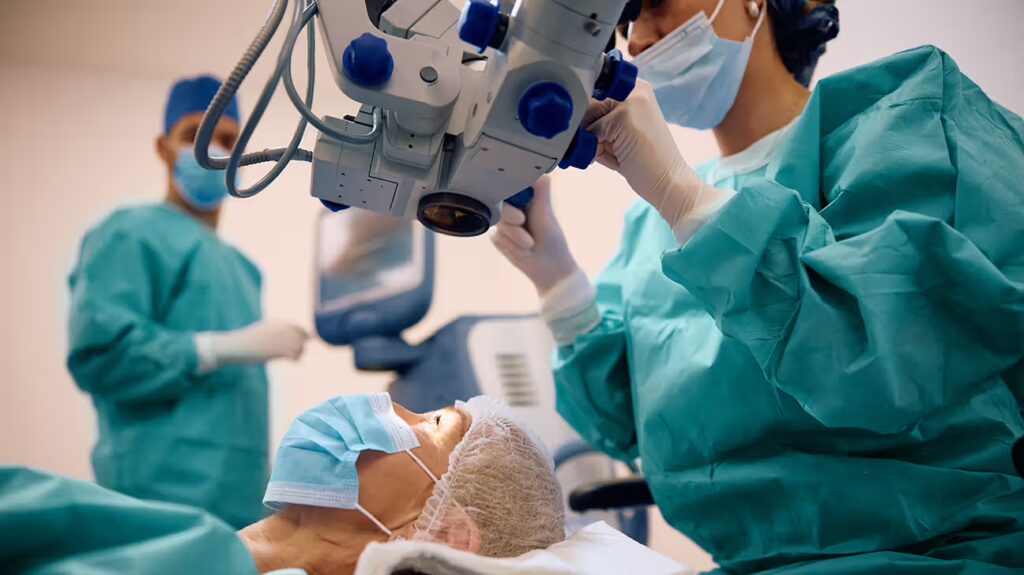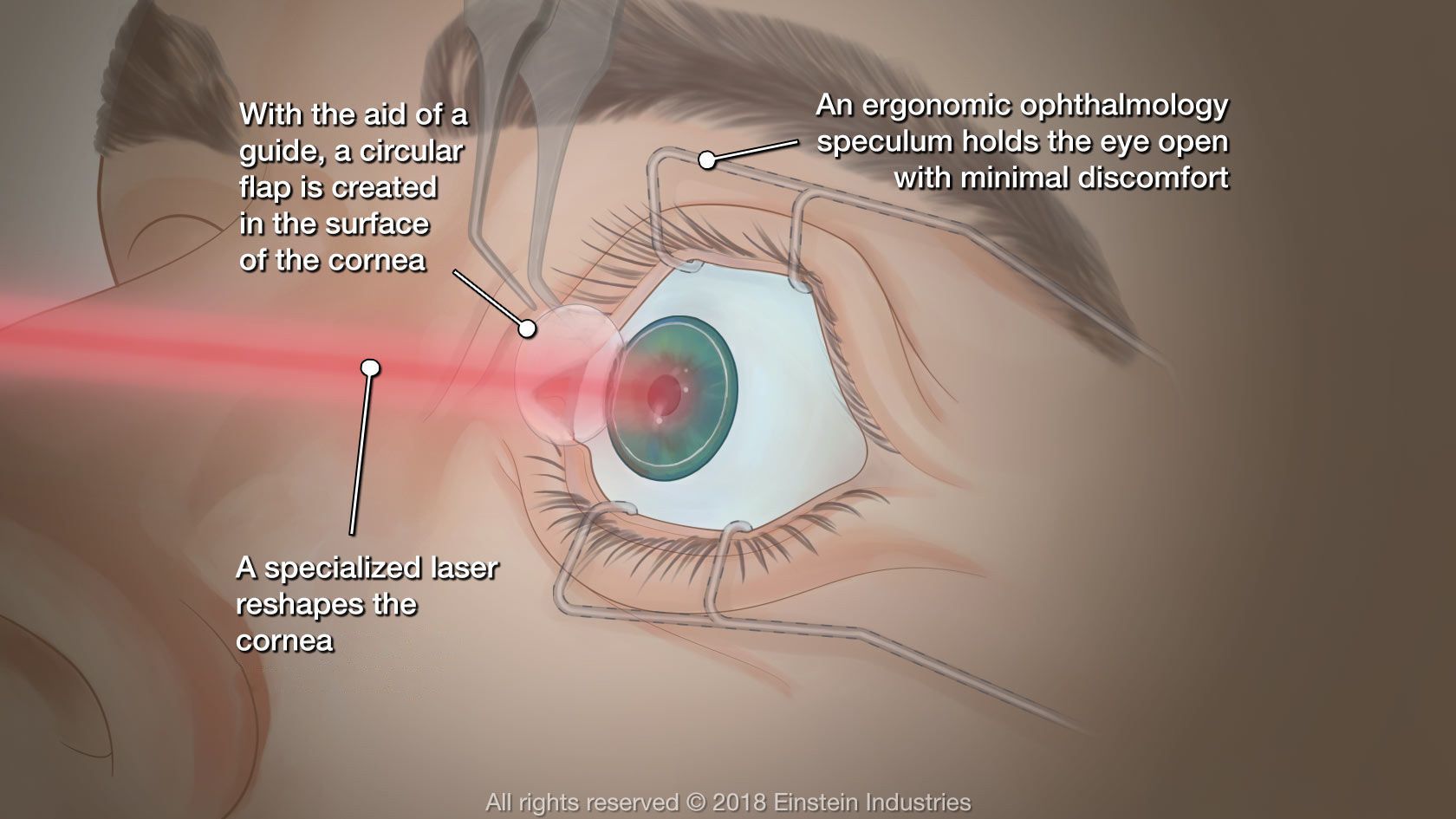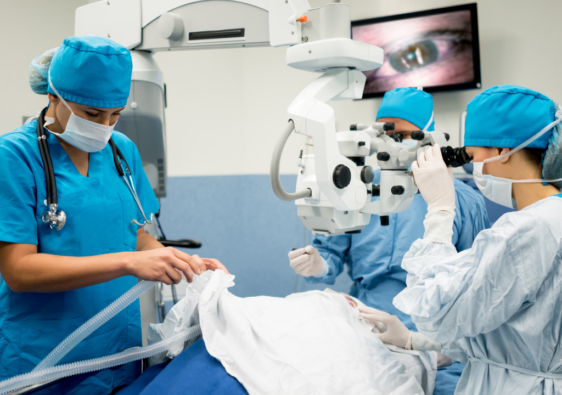Laser eye surgery, whether LASIK, PRK, or SMILE, offers the promise of clear vision without glasses or contacts. But the real story happens in the days and weeks—and sometimes months—after the laser has done its work. A smooth recovery is just as essential as the surgery itself. Let’s walk through what happens before, during, and especially after laser eye surgery, with practical tips to help you heal confidently and comfortably.
Introduction: Why Laser Eye Surgery—And Why Recovery Matters
Laser eye surgery reshapes your cornea to correct refractive errors like nearsightedness, farsightedness, and astigmatism. It’s a powerful tool that gives many people lasting freedom from corrective lenses. Yet, it’s important to remember that surgery is only half the journey—proper recovery ensures that the results stick and your eyes heal safely.
Before Surgery: Preparing Your Body and Mind
The Consultation & Initial Exam
Your recovery journey begins with a thorough eye exam. Doctors check corneal thickness, tear production, and overall eye health. If you’ve been dealing with dry eyes, that’s addressed too—since pre-existing discomfort can affect recovery.
Eligibility Checks & Pre-Op Guidelines
To be a good candidate for surgery:
- Your prescription should be stable for at least a year.
- You should be over 18 and generally healthy.
- You must have realistic expectations—and a backup plan in case you require glasses later in life.
Before surgery, you may be asked to:
- Avoid contact lenses for several days (they alter corneal shape).
- Skip eye makeup, lotions, and perfumes the night before.
- Arrange a ride home—vision will be foggy immediately after surgery.
During Surgery: A Quick but Critical Moment
What Happens During the Procedure
- Eye drops numb your eyes—no needles involved.
- A small device gently holds your eyelid open.
- In LASIK, a flap is created in the cornea; in PRK, the top layer is removed.
- A laser then precisely reshapes the cornea.
- If a flap was created, it’s laid back in place.
Comfort Level
The procedure usually takes under 30 minutes. Most patients describe it as awkward but not painful—often compared to a brief pressure sensation and bright lights.
After Surgery: Day One and Beyond
Immediate Recovery
After surgery, you’ll rest for about 30 minutes. Bring sunglasses—your eyes will be light-sensitive. Many people take a nap to let their eyes absorb the medications and relax.
See more: EverFlo Oxygen Concentrator Australia: Key Features and Benefits
First 24 Hours: What to Expect
Expect:
- Mild irritation or scratchy feeling
- Tearing or discharge
- Blurry or patchy vision
Avoid rubbing your eyes—even if they itch.
Days 1–7: Healing in Motion
Follow these tips:
- Use prescribed eye drops religiously for lubrication and healing.
- Skip makeup, dusty environments, swimming, and sauna time.
- Wear sunglasses outdoors—UV protection helps healing.
- Eat well and stay hydrated to support tissue recovery.
Most patients experience significant improvement in vision within 48 hours. If you had PRK, your recovery may take longer—sometimes up to a week before seeing more clearly.

Weeks 1–4: Monitoring and Adjusting
Attend scheduled follow-up visits. These allow your doctor to monitor progress and catch any early complications. You may notice mild glare or halo effects at night. This often improves over time.
Tips for a Smooth Healing Process
- Stick to the eye drop schedule—dry eyes slow healing.
- Avoid strenuous activity and exercise for at least a week.
- Get adequate sleep—your body heals best when rested.
- Protect your eyes—no rubbing, no smoky rooms, and minimal screen time initially.
- Do follow-up care seriously—missed visits can delay detection of early issues.
Risks and Expectations: Balancing Hope with Reality
Normal Side Effects
Common, usually temporary symptoms include:
- Dry eyes
- Night glare or halos
- Mild redness or irritation
- Fluctuating vision
These typically resolve within a few weeks to months.
Rare Complications
Although uncommon, potential issues include:
- Infection
- Flap complications (in LASIK)
- Haze on the cornea (more frequent with PRK)
- Persistent dryness
- Vision regression (some loss of corrected vision over time)
What to Expect in the Long Term
- Many people achieve 20/20 vision or better
- You may still need reading glasses later in life—aging eyes change regardless of surgery
- Some patients choose a minor enhancement procedure later if needed
Real-World Analogy: Healing Like Building a Garden
Think of your post-op eye like newly planted seeds in a garden. You water them, protect them from pests, avoid stepping on them, and allow sunlight—a little patience and care yields blooms. Skip those steps, and buds may struggle. The same goes for detailed post-op care after laser eye surgery.
Conclusion: Clear Vision Begins With Wise Recovery
Laser eye surgery offers a path to clearer vision—but the real success shines through safe and attentive recovery. Treat this time as the foundation of lasting results. If you’re considering this procedure, prepare for the journey: consultation, surgery, and most importantly, care afterward. Follow your doctor’s advice, take your recovery seriously, and give your eyes the best chance to flourish.



